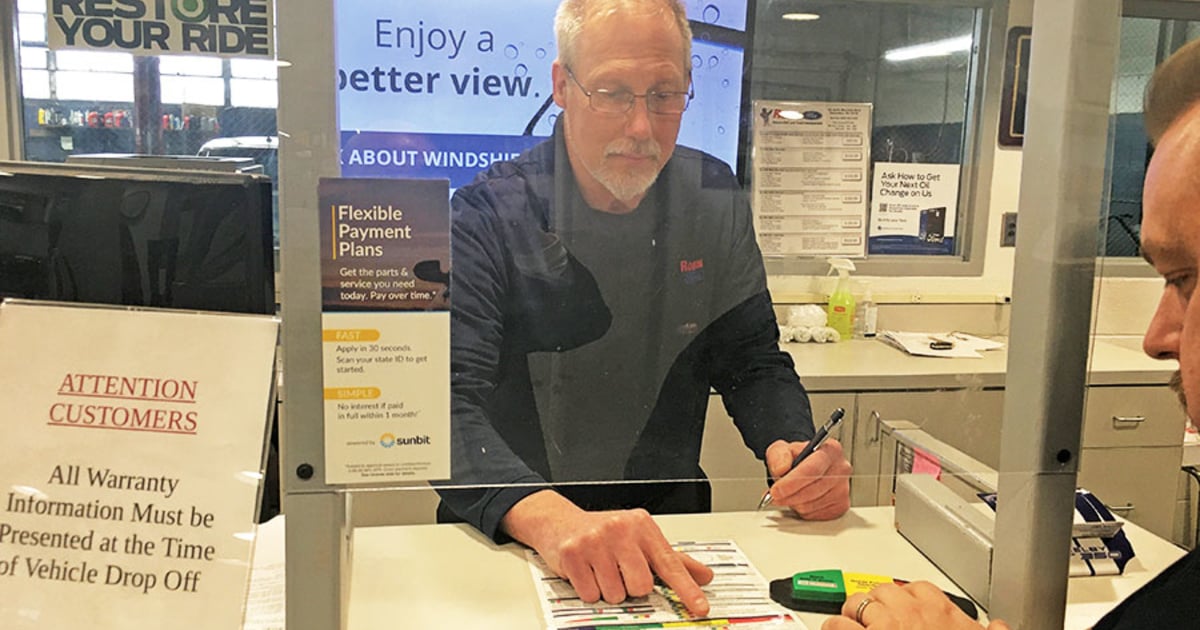
The way Harold White sees it, customer surveys conducted by automakers and independent companies often provide an opaque picture of how well a store is satisfying its customers.
So, White, general manager of Robin Ford in Glenolden, Pa., since 2013, decided to use the equivalent of a magnifying glass on the customer survey process. He added two specialists to his store’s call center. Their only job: Call Robin’s new-vehicle, used-vehicle, service and commercial customers to seek immediate feedback. The calls usually take place a day or two after the customer visit.
Each morning when White turns on his work computer, the first file he looks at is the one containing reports that detail what customers are saying about how they were treated, if repairs were done properly and if they experienced anything that might cause them to look elsewhere for their next vehicle or service visit. White said he reads 150 to 200 reports per week.
The privately owned store is not part of a dealership group. It is located about 17 miles southwest of Philadelphia, and it’s small. Robin Ford has just 35 employees, and last year it posted sales of around 600 new and used vehicles, down from the store’s usual annual volume of 700-800.
White, who worked as a field service manager for Ford for 33 years, said personal relationships and combating problems quickly help keep his customers from drifting to larger stores close by. When White spots a serious complaint, especially if it is an issue that he doesn’t want the store to be known for, he’ll often call the customer to try to resolve it. And any customer that calls the store and asks to speak to the general manager immediately gets routed to White.
Robin Ford does have negative reviews on DealerRater, CarFax and other Internet platforms. However, White said, those reviews often don’t tell the whole story.
“What concerns me most about the surveys the factory sends is that it doesn’t always address a customer’s immediate issue or what they are really concerned about,” said White, who is also a certified technician.
White said surveys from Ford tend to elicit comments about the design of the vehicle or some other aspect that the dealership has no control over. Recalls and other quality issues, for instance, often cause customers to lash out at the dealership.
“We were getting survey results that involved dissatisfaction with the product, which in most cases is out of our control to resolve. We were receiving a grade from the survey that was not reflective of customers’ concerns, so we decided to provide a personal touch,” added White.
Robin Ford’s customer calls are informal and usually last about five minutes. A few questions are designed to get the customer talking about their visit. The conversations also allow the store’s managers to monitor how closely employees are consistently following the store’s processes.
White said Robin Ford strives for perfect customer satisfaction scores even though some will not be satisfied with their experience. One customer, for instance, left a negative review on a secondhand car he bought that had been in an accident, but the store did not disclose it. Robin Ford does provide CarFax reports and the customer could have read it before purchasing.
CarFax shows Robin Ford with a 4.7 star rating out of a possible 5. Cars.com shows Robin Ford with a 4.6 star rating out of 5. And CarGurus lists 3 stars out of 5. White said those ratings were below 3 stars for the sales department when he arrived a decade ago.
White’s advice for other dealers interested in getting more timely feedback from customers: Call, don’t email or text. Keep it informal.
Said White: “You’ll get to the root cause of your issues if you survey your own customers. If you talk to them on the phone, you’ll find out what your customers really want to talk about.”
“Disappointing reviews do happen, and when they do we know why. We don’t try and fight it. We don’t call the customer and ask them to change their mind. The score is the score. If the review is not legitimate, I don’t go back and ask them to redo it,” White said.
But he’s found that talking to dissatisfied customers often convinces them to give the dealership another shot. Sometimes it will offer discounts on services, and that strategy, White said, has been successful in changing the attitudes of at least some of the customers who were not happy. Some who left a negative review came back and either bought another vehicle or gave the service department another try after Robin Ford listened to their concerns. In talking to the customer, White said: “You get a chance to try and do better next time, right? And they’ll give you that chance.”